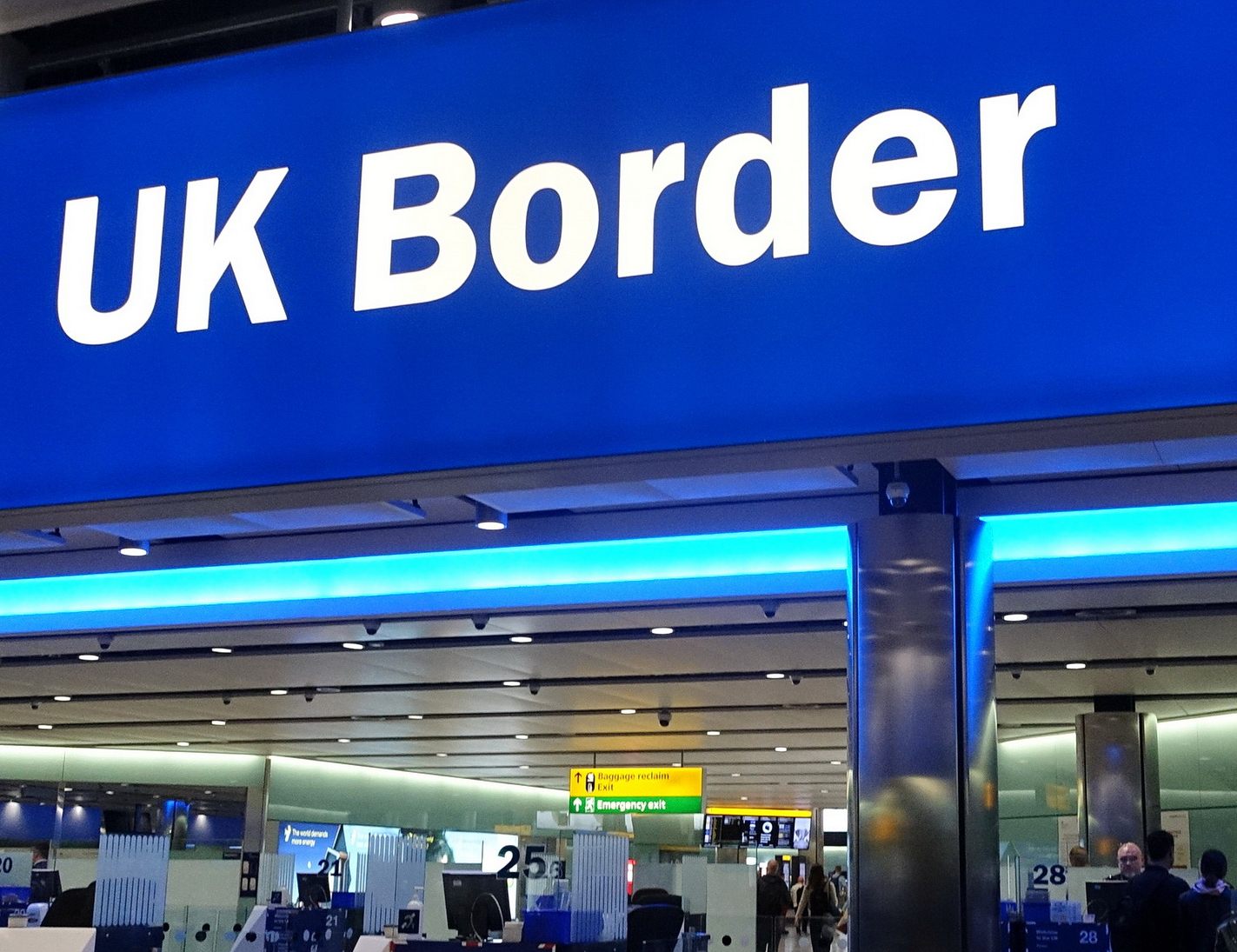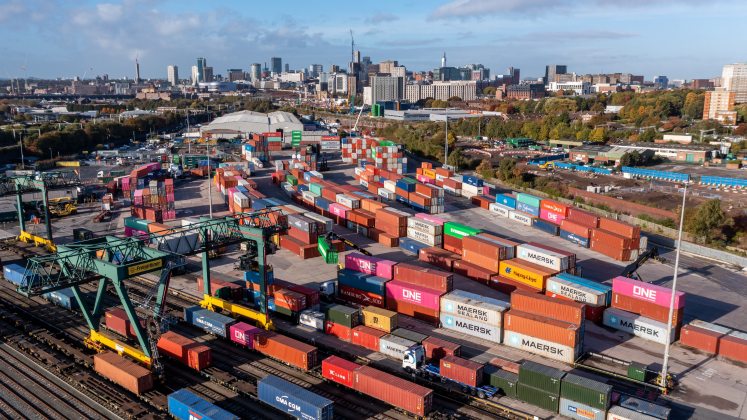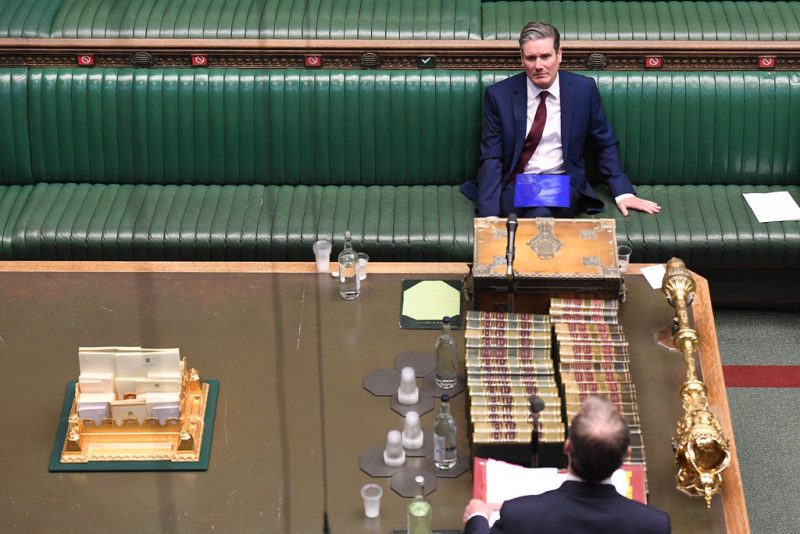Labour’s plans to tackle high immigration numbers when it comes to the arrival of small boats include the creation of a new Border Security force, as well as a new agreement with the EU to combat smuggling gangs. These measures won’t be enough, argues Omar Hammoud-Gallego. A new asylum pact with the EU along the lines of the Dublin Regulation is needed, as well as the creation of legal and safe routes for asylum seekers.
As announced in the King’s Speech, Prime Minister Keir Starmer will soon have to deal with an issue that has dominated the political discourse and polarized public opinion over the last few years: the arrival of small boats bringing asylum seekers to the country.
Despite the Conservatives’ fiery rhetoric and their controversial Rwanda plan — which saw over £700 million spent without ever being implemented — they oversaw the largest increase in small boat arrivals ever, jumping from zero in 2017 to around 29,000 in 2023. According to Home Office figures, in the first six months of 2024 alone, over 13 thousand individuals landed on the UK coasts. With the Sunak premiership relegated to history, the Rwanda plan has finally been shelved. It was an ineffective, costly, and illegal initiative, seemingly designed more to polarize public opinion than to seriously address the challenge of irregular migration.
Labour have pledged to scrap the Rwanda scheme, but how will they tackle this issue themselves? Their manifesto focuses on a new Border Security Command and a security agreement with the EU to combat smuggling groups, as well as increasing Home Office staff to deal with the existing backlog of asylum applications. These are worthwhile and serious proposals, but they are not enough to successfully address this complex issue.
The current 12-month ban on asylum seekers working, which makes asylum seekers dependent on a small cash allowance of barely £50 per week while isolating them from the rest of society, is both unnecessary and counterproductive.
First, one of the big problems facing the Government is the high cost of hosting asylum seekers in hotels as they await the outcome of their applications. To reduce these costs, as well as the high risk of homelessness that often follows asylum seekers’ recognition as refugees, the Government should allow them to work soon after their application has been submitted – in line with European standards, between 3 and 6 months, ideally less. Additionally, the period between their recognition as refugees and the suspension of Home Office support should be extended from 28 to 56 days, as widely recommended by several charities. The current 12-month ban on asylum seekers working, which makes asylum seekers dependent on a small cash allowance of barely £50 per week while isolating them from the rest of society, is both unnecessary and counterproductive. As research shows it delays their integration into society and the labour market, as well as increasing their chances of homelessness, as explained by migration expert Colin Yeo in a recent essay.
A new asylum pact along the lines of the Dublin Regulation should be renegotiated between the UK and the European Union to allow for the return of certain individuals, especially those with little to no chance of being recognized as refugees based on existing statistics.
Second, dealing with asylum seekers already in the UK is one thing, but the solutions above do not deal with the issue of decreasing the absolute number of individuals arriving. In fact, while broader cooperation with the European Union, and France specifically, is necessary to tackle the issue of smugglers, such cooperation will not stop the demand for small boat crossings, as Starmer and Macron acknowledged at the recent European Communities summit. As is the case in most markets, where there is demand, suppliers will appear, especially when the returns are as high as they tend to be in this dreadful business— as reported recently by the BBC. For instance, in a recent research article, I have shown how across South America the introduction of visa restrictions to stem the arrival of Venezuelan migrants simply shifted the mode of entry of many of them, leading them to take irregular entry routes into their countries of destination.
To stop irregular migration, there must also be a focus on creating legal and safe routes for asylum seekers.
A new asylum pact along the lines of the Dublin Regulation should be renegotiated between the UK and the European Union to allow for the return of certain individuals, especially those with little to no chance of being recognized as refugees based on existing statistics. Any such deal would most likely entail the reallocation of some refugees with connections to the UK directly from mainland Europe to make it appealing to the EU. Additionally, multiparty agreements between the UK, the EU and third countries to jointly negotiate the return of individuals with manifestly unfounded asylum claims to their countries of origin would also strengthen UK-EU cooperation, re-building the trust shattered by the Brexit fiasco.
Finally, as the Greek PM Kyriakos Mistotakis recently said to the Rest is Politics podcast, a country needs both “a big fence” and “a big door”. In other words, to stop irregular migration, there must also be a focus on creating legal and safe routes for asylum seekers. What could these look like? Resettlement schemes are a way to bring refugees, often from third countries, into safe ones. These schemes are implemented by several democracies, including the UK, through programs such as the Vulnerable Persons Resettlement Scheme. However, this scheme is woefully underused, with resettled individuals making up only one in every five persons granted asylum in the UK. This means that if you want to seek asylum in the UK, the existing incentives are for you to do so via small boat or similar means. This clearly needs to change.
After 14 years of Conservative rule, Labour has finally a chance to address this issue in a sensible and evidence-based manner, especially as its comfortable majority will allow it to negotiate with the EU. The Conservative opposition is already squabbling over Rishi Sunak’s successor and will spend the next few months deciding whether to come back to being a centre-right political party or follow Farage’s Reform Party towards more populist shores. This situation provides Labour with a window of opportunity to engage in sensible policymaking and take out the heat from this issue that has been weaponised by populist voices across the UK. With the next elections well away from us, this is an opportunity it should not squander.
All articles posted on this blog give the views of the author(s), and not the position of LSE British Politics and Policy, nor of the London School of Economics and Political Science.
Image credit: Ralf Geithe on Shutterstock.







